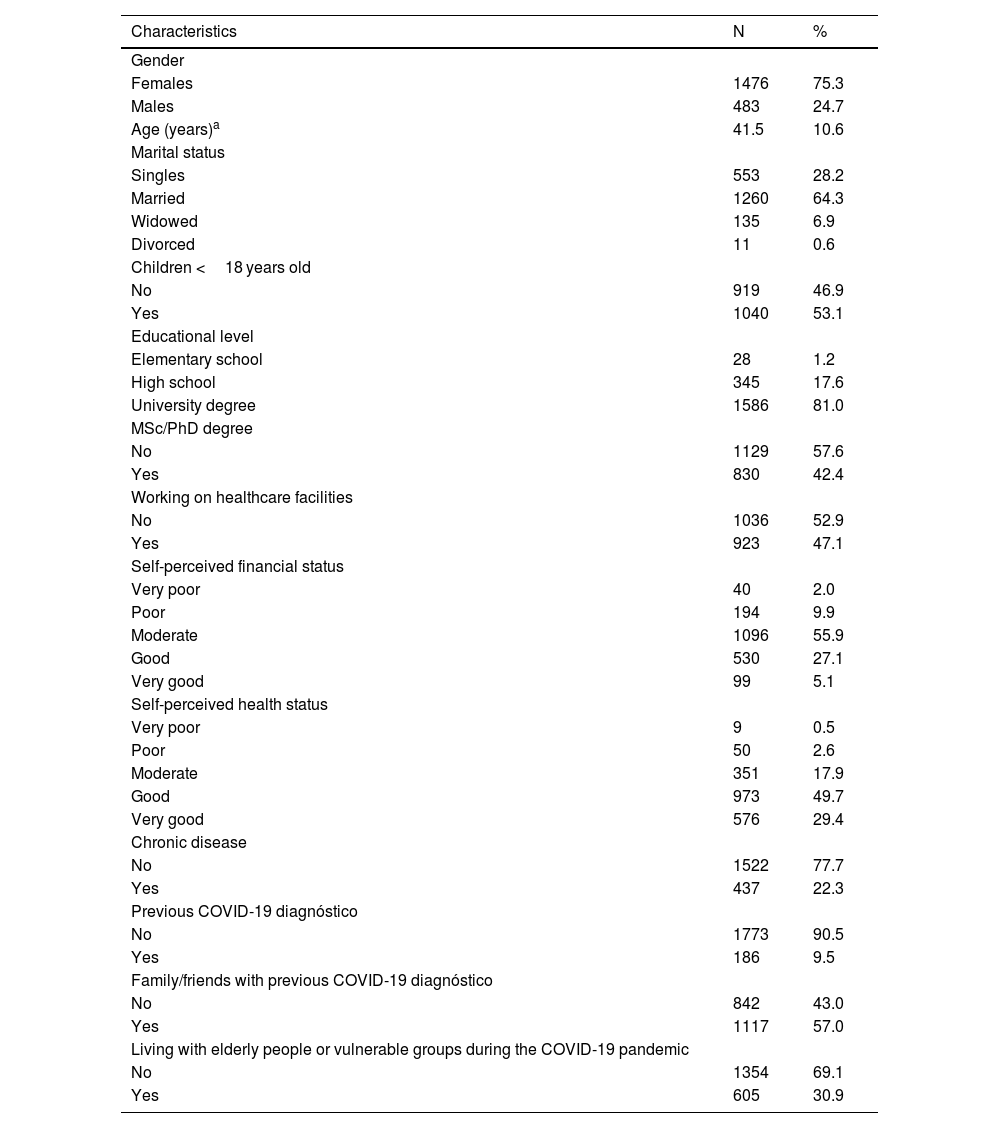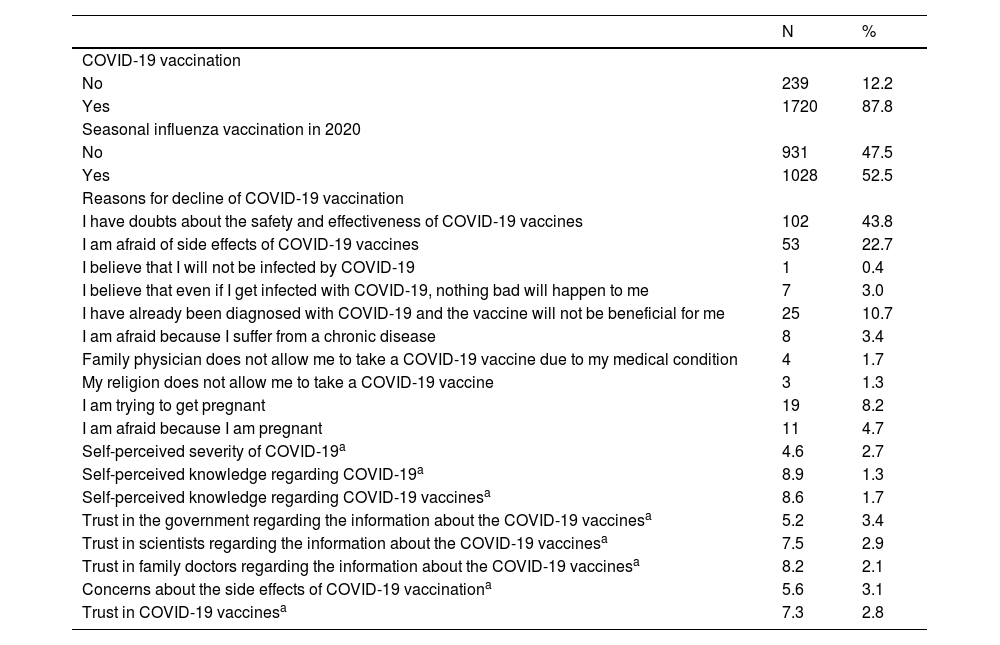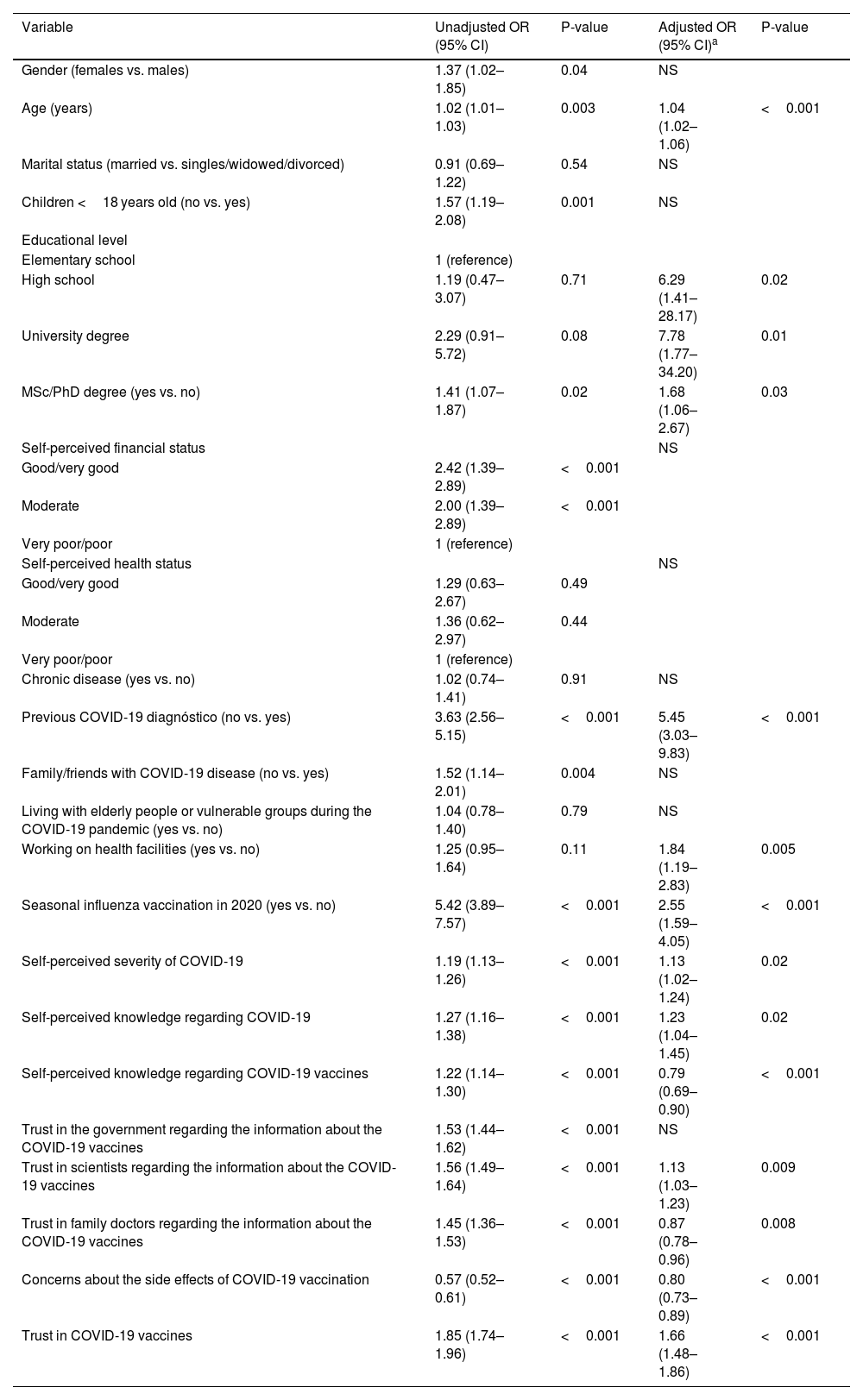
COVID 19 & vaccines: Development and practice
More infoTo estimate the percentage of the general population vaccinated against the COVID-19 and to investigate the factors associated with COVID-19 vaccine uptake.
Material and methodsWe conducted an online cross-sectional study in Greece during August 2021. We included individuals over 18 years of age. Independent variables included socio-demographic data of the participants and attitudes towards COVID-19 vaccination and pandemic. Our outcome variable was COVID-19 vaccination status, measured through “yes/no” answers.
ResultsMost participants had been vaccinated against the COVID-19 (87.8%). Multivariate analysis identified that increased age and a higher level of education were associated with an increased likelihood of COVID-19 vaccination. Also, participants working in health services, participants without a previous COVID-19 diagnóstico, and those with previous seasonal influenza vaccination history had a greater probability to take a COVID-19 vaccine. Additionally, increased self-perceived severity of COVID-19, knowledge regarding COVID-19, and trust in COVID-19 vaccines and scientists were associated with COVID-19 vaccine uptake. On the other hand, the likelihood of vaccination was lower for participants who were more concerned about the side effects of COVID-19 vaccination.
ConclusionsUnderstanding the factors affecting individuals' decision to take a COVID-19 vaccine is essential to improve the COVID-19 vaccination coverage rate. Policymakers and scientists should scale up their efforts to increase the COVID-19 vaccination rate among specific population groups such as young people, people with a low level of education, etc.
Calcular el porcentaje de población general vacunada contra la COVID-19 e investigar los factores asociados a la aceptación de dicha vacuna.
Material y métodosRealizamos un estudio transversal online en Grecia durante el mes de agosto de 2021, en el que incluimos a individuos mayores de 18 años de edad. Las variables independientes incluyeron los datos sociodemográficos de los participantes y las actitudes hacia la vacunación y la pandemia de COVID-19. Nuestra variable del resultado fue la situación de vacunación contra la COVID-19, medida mediante respuestas “sí/no”.
ResultadosLa mayoría de los participantes habían sido vacunados contra la COVID-19 (87,8%). El análisis multivariante identificó que el incremento de la edad y el mayor nivel educativo estaban asociados a un aumento de la probabilidad de vacunarse contra la COVID-19. De igual modo, los participantes que trabajaban en servicios sociales, aquellos participantes sin un diagnóstico previo de COVID-19, y aquellos con historial previo de vacuna contra la gripe estacional tenían una mayor probabilidad de vacunarse contra la COVID-19. Además, el incremento de la gravedad autopercibida de la COVID-19, el conocimiento sobre la enfermedad, y la confianza en las vacunas contra la COVID-19 y en los científicos estuvieron asociados a la aceptación de la vacuna. Por otro lado, la probabilidad de vacunarse fue menor en los participantes más preocupados de los efectos secundarios de la vacuna contra la COVID-19.
ConclusionesComprender los factores que afectan a la decisión de los individuos sobre la vacunación contra la COVID-19 es fundamental para mejorar la tasa de cobertura de dicha vacunación. Los responsables políticos y los científicos deberán redoblar sus esfuerzos para incrementar la tasa de vacunación contra la COVID-19 entre los grupos de población específicos tales como la gente joven, las personas con un bajo nivel educativo, etc.








